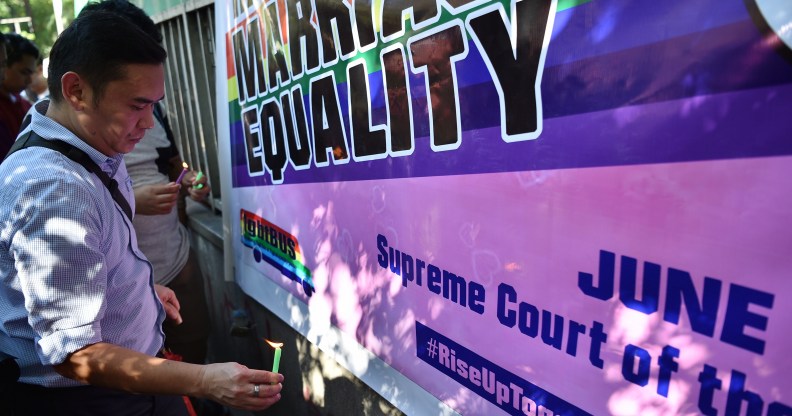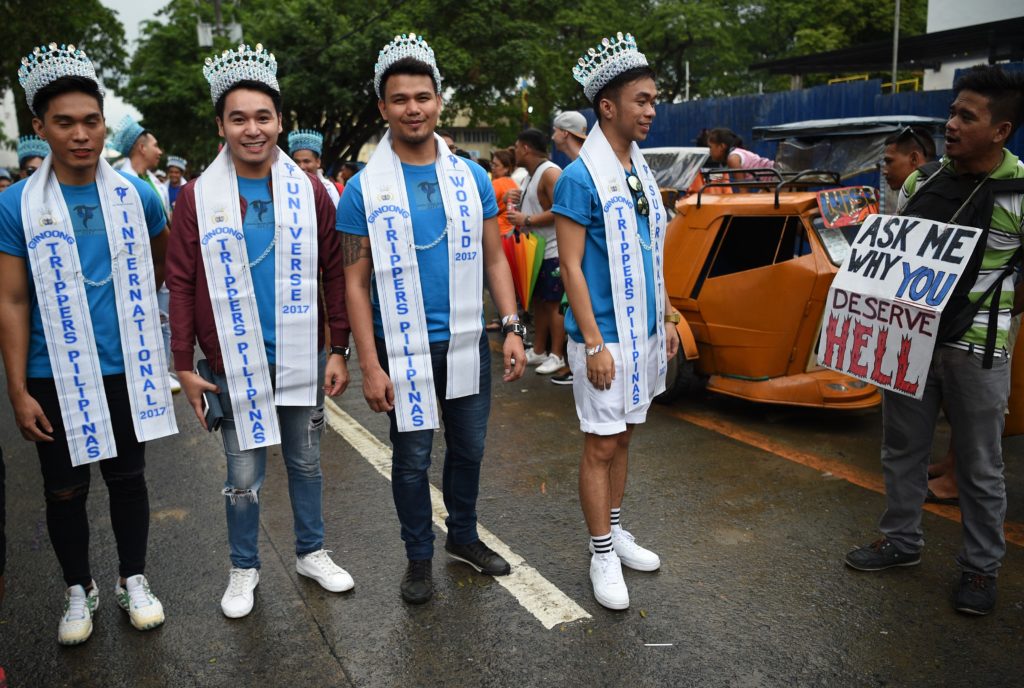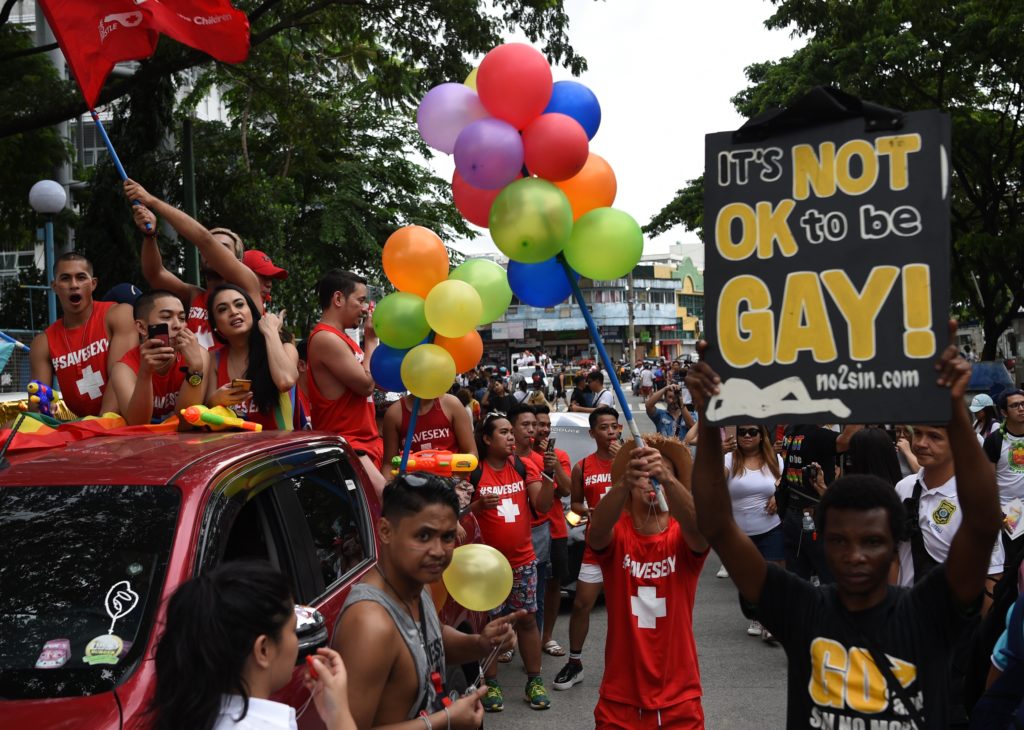Philippines’ Supreme Court refuses to legalise same-sex marriage

Members of the Filipino LGBT+ community light candles as they take part in a rally in front of the Supreme Court in Manila (Ted ALJIBE/AFP/Getty)
The Philippines’ highest court has rejected a landmark case to legalise same-sex marriage, despite admitting that the constitution does not restrict marriage on the basis of sex.
A young, openly gay Filipino lawyer named Jesus Falcis petitioned the Supreme Court for same-sex marriage back in 2015, arguing that the current legislation was a violation of his rights.
“I filed the petition because it is the very reason why I studied and took up law to challenge unconstitutional and oppressive laws,” he said at the time.
“The fight for equality cannot wait. As soon as I passed the bar, I started preparing to write the petition. The longer time passes the longer gays are discriminated.”
But on Tuesday, September 2, the Supreme Court made a unanimous decision to throw out his case on technical grounds.
According to a press statement, the tribunal “recognised the protracted history of discrimination and marginalisation faced by the LGBTQI+ community, along with their still ongoing struggle for equality”, but refused to alter the law.

A member of a conservative Christian church at a Filipino Pride march (Ted Aljibe/AFP/Getty)
Same-sex relations are generally tolerated in the Catholic country, but there are currently few legal protections for LGBT+ people.
Abortion is still illegal in the Philippines and it is the only country outside the Vatican where divorce is outlawed.
Despite the setback, LGBT+ advocates are hopeful that a change in the law could be forthcoming, as the Supreme Court decision indicates that same-sex unions could instead be legalised by Congress.
The Supreme Court “acknowledged that same-sex couples may morally claim that they have a right against discrimination for their choice of relationships” and said “official recognition of their partnerships may, for now, be a matter that should be addressed to Congress”.

Members of LGBT+ community walk past a man protesting against a Pride march in Marikina City, east of Manila (Ted Aljibe/AFP/Getty)
Danton Remoto, chair of LGBTQ political party Ang Ladlad, told The Jakarta Post: “It simply means we have to continue advocacy for legislating an anti-discrimination bill in Congress, where we have many allies.
“The great stumbling block will be the Senate, peopled by Christian fundamentalists who have forgotten that there is separation of church and state in the Philippines.”

